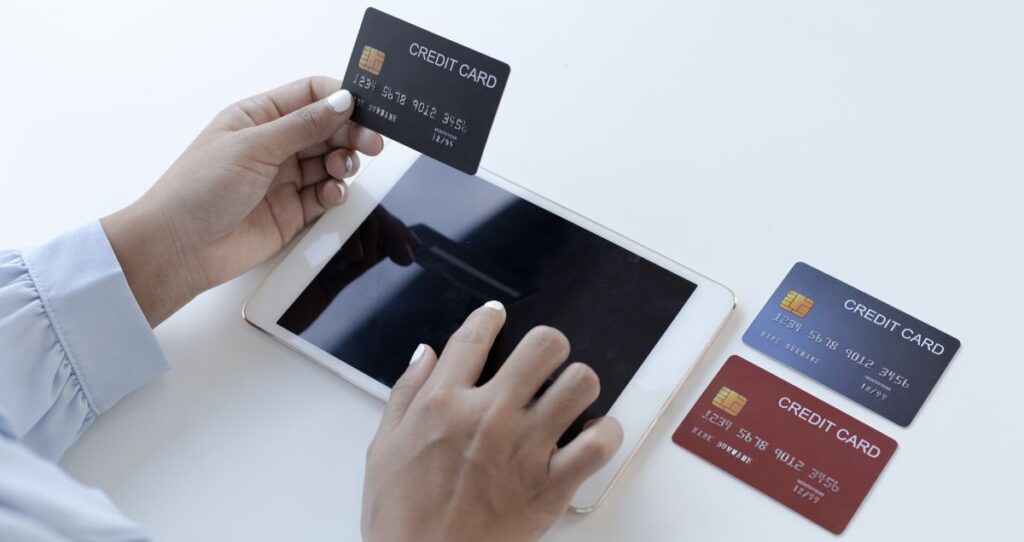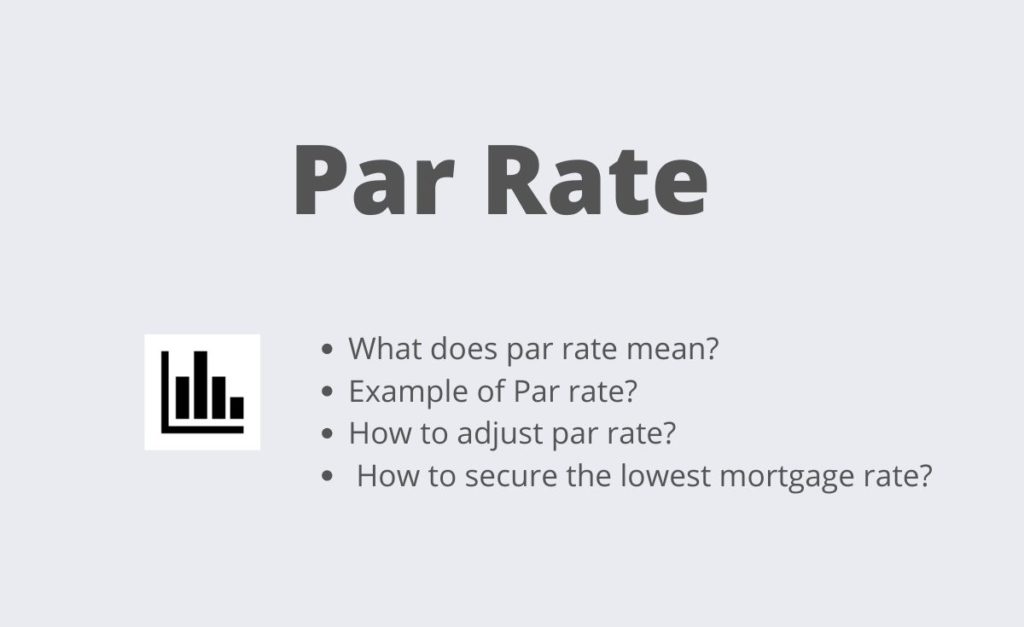Your payment history alone accounts for 35% of your credit scores which makes it the most important factor to keep your eyes on. Each credit card you have comes with its own balance due date and statement closing date. If you have many credit cards and other credit accounts, it might be difficult to keep track of all of them. Knowing when credit card payments are reported to credit reporting bureaus prevents a late or missed payment on your credit report. If you want to know when credit card payments get reported, you have come to the right place.
Your credit card payments get reported to credit reporting bureaus shortly after the end of each credit account’s billing cycle. This means that what you see in your credit report is mostly the information from the previous billing cycle.
Your credit scores change frequently due to new information reported to credit reporting bureaus. Every company that manages your credit accounts such as lenders report your accounts’ activities to credit reporting agencies. The information is then used to make your credit report.
When do credit card payments get reported to credit reporting bureaus?
Every credit card you have comes with its own balance due date and statement closing date. This applies to other accounts that you have such as loans and mortgages. A monthly statement cycle can be between 28 days to 31 days. In other words, a statement cycle is equal to the number of days you have in that month.
Since you have different credit cards that come from different lenders, you will most likely have different due dates on your credit cards. Shortly after the end of your statement billing cycles, your credit card payments will be reported to credit reporting agencies.
Since you have different due dates, your payments get reported at different dates in the same billing cycle. Credit reporting bureaus(Equifax, TransUnion, Experian). For this reason, your credit score may be different from the last time you checked even if it is within the same month.
Some lenders do not report to all three major credit bureaus. Other creditors do report your account activities at all. This causes variations in the information reported on your credit report and different credit scores from different credit reporting agencies.
Related: Why are my credit scores different?
How many credit reporting bureaus are there?
There are three major reporting bureaus in the USA which are:
- TransUnion
- Equifax
- Experian
These reporting bureaus collect information from your lenders and other companies that manage your accounts and compile your credit reports. They also use some information from your credit reports to calculate your credit score.
Each company has its credit scoring model. These models put different weights on different information in your credit report. The weight also varies based on industry. For example, one company could put more weight on payment history for mortgage loans but not for car loans.
The difference in the credit score calculation models causes your credit scores to be different from one reporting agency to another.
Some lenders and companies that manage your accounts choose to report credit card payments to only one or two reporting agencies. Others do not report your information. As a result, a credit reporting agency that calculated your report with more information will end up with a different credit card than others.
Why do I have different credit scores?
It is more likely that you have different credit scores from three major credit bureaus. Just because your credit scores are different, it does not mean one is more accurate than the other. It simply means that there are some variations in your credit score calculations from one company to another.
Other factors could also come into play such as when and where your account activities have been reported. The following are a few reasons why your credit scores are different.
- Credit reporting agencies use different credit scoring models. Each credit bureau has its own scoring models for computing your credit scores. These models apply different weights to information in your credit report which causes variations in your credit scores. For example, a credit score created using FICO Score Model will not be the same as the Vantage Score model.
- Your information has been updated since you last checked. Your credit card payments get reported right after the end of your billing cycle. Since your credit cards have different billing cycles, are dynamically changing within the same cycle. Which might result in different credit scores.
- Your credit report might not be updated yet. Just because you made a payment and your credit card payment got reported, it does not mean all bureaus are going to update your report at the same time. Credit bureaus are independent and one could update your report faster than the other. It also may take time to get your credit report updated. However, if you made a payment and your report did not get updated after a few months, you should investigate the situation. It is possible that your lender did not get your payments reported to credit bureaus or there was an error in the reporting process. So, work with both the lender and credit bureaus to make resolve the issues.
- Your lenders reported your account activities to some reporting agencies or did not report them at all. Some lenders choose to report to a few or one reporting company. This causes variation in your credit reports and credit scores.
Related: Why are my credit scores different?
How many times do credit scores get updated?
Your credit scores change as the information in your credit report changes. Your credit score usually gets updated once between 30 to 45 days as your account managers and lenders submit your account activities to credit reporting agencies. Once the information is received, your credit report will be updated. Depending on the new updates on your credit report, you might see changes in your credit scores as well.
For example, if you paid off large credit card balances, you will notice a big impact on your credit scores. Lenders do not report to all nationwide credit reporting agencies. Others report your account activities more frequently within the same billing cycle. In addition, your accounts have different due dates within a billing cycle. These differences in when, where, and how your information has been submitted, can be reflected on your credit scores before multiple times in a month as major bureaus continuously update your report.
As you check your credit score multiple times within a billing cycle, you might see different numbers. Your score could go higher or lower depending on what was reported. For example, if you had a hard inquiry, your credit score will decrease anywhere between 5 to 6 points.
If your lender did not submit that credit card application to one of the reporting bureaus; the credit report from that lender will not have that hard inquiry. This means the credit score that will be reported by that agency will be a bit higher than those from bureaus that received your new credit card account information.
What should I do when there is an error on my credit report?
The people that submit your credit account activities to three major credit bureaus and those that compile your reports are humans. For this reason, you may end up with errors and inaccuracies in your credit report.
If you see any items that have been wrongly reported in your credit report, dispute the errors as soon as possible. You can dispute errors on your report directly with the reporting agencies that put together your credit report.
You can also dispute the error with the lender that reported your information to the credit reporting agencies. The last option is to dispute errors in your credit reports to both credit bureaus and lenders at the same time.
If your dispute letter, you must submit the following information:
- Your full name and address
- Nature of the error or inaccuracies
- The number of the account
- Explain why you think your credit information has errors
- All evidence that supports your claims such as receipts, payment activities, etc.
You must ask the lender /credit bureaus to remove or correct the errors in the report. If your claim is found legitimate, the bureaus and/or lender will correct the information. You might also get a response regarding your claims and the decisions made to those claims.
First, get a free copy of your credit report
If you are trying to rebuild your credit and keep your credit healthy, you need to continuously evaluate your credit reports and clean them up. First, get a free copy of your credit report from annualcreditreport.com. Each one of the three major reporting bureaus is required to give you a free copy of your report once in 12 months. After getting your report, make sure that you read it thoroughly and use this guide on how to clean up your credit reports. Any errors, inaccuracies, wrongly reported negative information, identity theft, etc. should be disputed. Keep in mind that there are negative items that will stay on your report for a while such as bankruptcies, missed payments, foreclosures, collections, tax liens, etc. You can work with your lender to get them removed by submitting a Goodwill letter. The creditor is not required to remove them, but if you have been a loyal customer, things could turn in your favor.
Related: How to dispute an error on your credit report?
How long does it take for a new credit card account to shop up on my credit report?
When you apply for a credit card, the credit account will not show up on your credit report right away. Just like your credit card payments get reported usually on a monthly basis, your new account will also be reported to credit reporting agencies.
How long does it take for your new account to show up on your report? It will all depend on:
- Where and when your account information was reported
- Vary from lender to another
- The billing cycle of your new account
By default, your new credit card account will take anywhere between 30-60 days to shop up on your report. If the account does not show up on some of your credit reports, it is possible that your lender did not report to that credit bureau or submitted your information late.
What you can do in the meantime, is use your credit card responsibly, reduce your credit utilization, and pay your credit balances on time. This will help you improve your credit history and build your credit score at the same time. In addition, paying off your balances on time prevents you from paying credit card interest rates and late fees.
It is always a good idea to pay off all your balances before the due date to avoid credit card debt. But, if you are struggling with credit card debts already, you can use this guide to pay off credit card debt.
Does my credit score go lower when I carry credit card balances?
There are many factors that affect your credit score. One of them is your credit utilization which accounts for 35% of your credit score. By carrying over the balance to the next payment cycle, you end up increasing your credit utilization. Hence lowering your credit score.
Having a high credit utilization shows that you are relying on debt to finance your expenses. This makes you a risky borrower and affects your creditworthiness. That is why you should keep your credit utilization low.
Most lenders recommend that you stay under 30% utilization. For example, if you have a credit limit of $1,000, you should spend at most $300. The lower your utilization the better.
Your payment history is the biggest factor in your credit score calculation. The payment alone accounts for 35% of your score. When you carry balances on your credit card accounts, you end up paying interest on your credit card balances. If you continue to carry more money and pay interest, your credit card debt will go higher and higher. This will make it difficult for you to pay off your credit card debts.
A higher balance also makes it difficult for your to keep up with your payments due to compounding interests. Eventually, you might end up missing a payment. Hence lowering your score.
Some of the tips you can use to keep your credit score healthy are to:
- Make your due payments on time
- Pay more than the minimum due amount
- Organize your credit cards and keep track of due dates
- Keep your utilization low
- Avoid applying for many credit cards
- switch to cash
Final words
Your credit card payments get reported to credit bureaus shortly after your statement due date. Since each credit card comes with its own statement closing date, your credit score may reflect different numbers from time to time.
Some of the companies and lenders may not report to all three credit reporting agencies. This will result in different credit scores from one credit reporting bureau to another. It may take time from when your information is submitted to when your report is updated. Your current credit report will more likely reflect information from your previous billing cycle. If you recently paid off a credit card balance, it might not be reflected on your report right away. It will be updated in due time.








